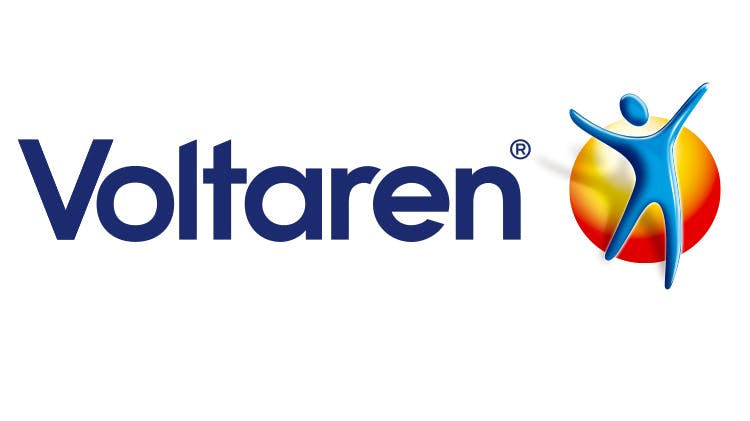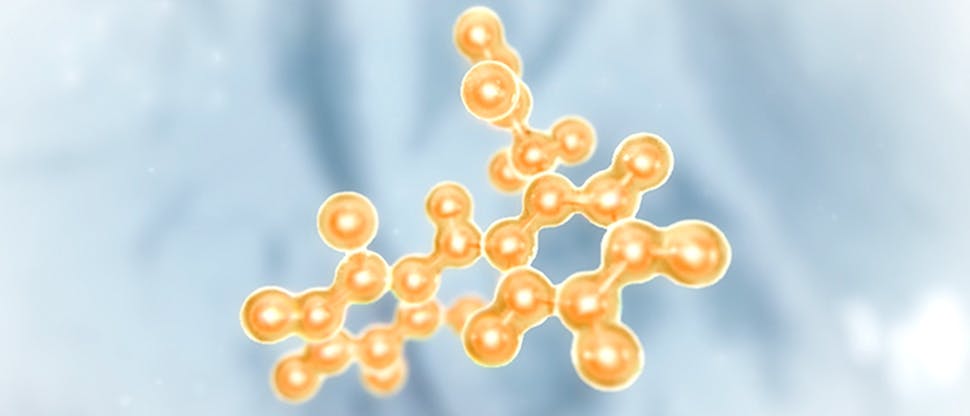Voltaren Emulgel Science - Diclofenac
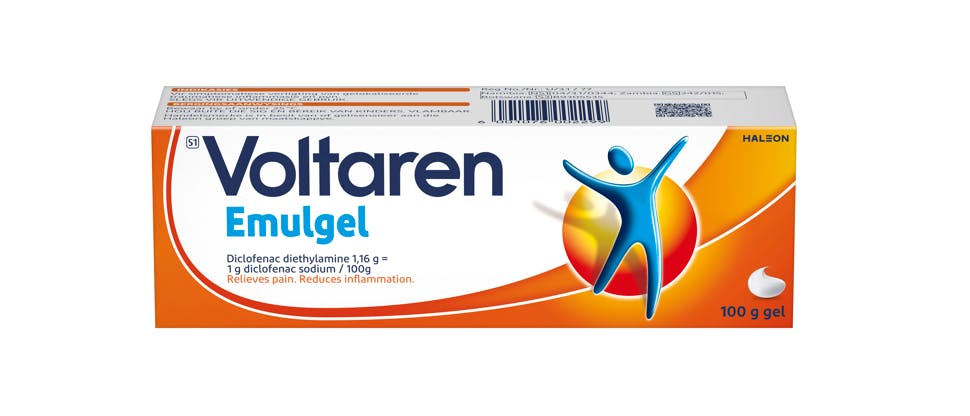
Acts through cyclo-oxygenase-2 (COX-2) inhibition, striking inflammation at its source
Learn how diclofenac reduces inflammation by inhibiting prostaglandin biosynthesis through action on the COX enzymes with selectivity for COX-2, and inhibiting phospholipase A2 activity to reduce the production of inflammatory leukotrienes.1,2,4
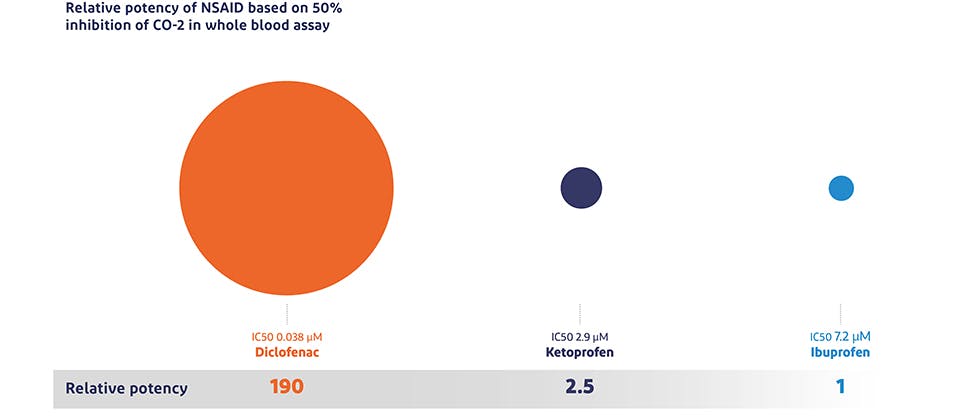
Diclofenac is a potent anti-inflammatory agent1
Its effect on the COX-2 enzyme means that, unlike non-NSAID medications such as paracetamol, diclofenac not only provides pain relief but also treats inflammation – a root cause of pain.2,4
Diclofenac, an NSAID (and therefore in the same drug class as ketoprofen and ibuprofen), shows marked potency in its inhibition of the COX-2 enzyme.5
Diclofenac targets inflammation to strike pain at its source
Diclofenac-containing products

Voltaren Emulgel
Indicated for relief of pain and swelling in soft-tissue injuries and localised forms of soft-tissue rheumatism, and relief of non-serious arthritis of the knee or fingers.2
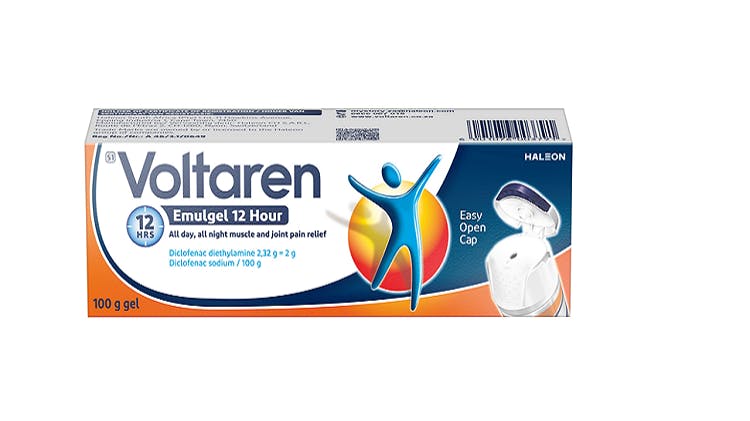
Voltaren 12-hour Emulgel
Indicated for relief of pain and swelling in soft-tissue injuries and localised forms of soft-tissue rheumatism, and relief of non-serious arthritis of the knee or fingers.2
Diclofenac – a potent anti-inflammatory ingredient1
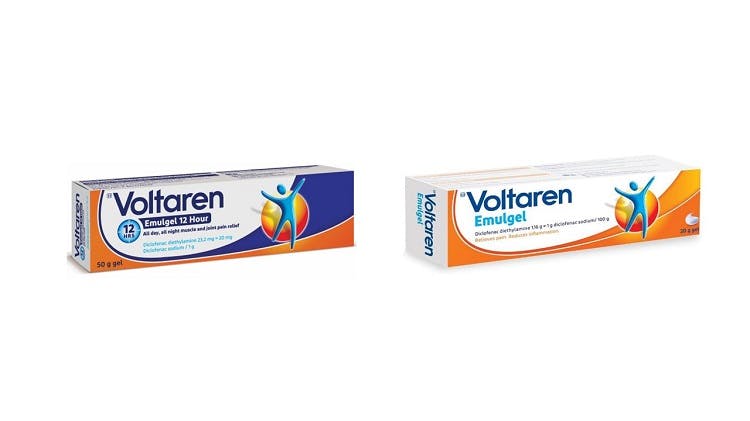
Diclofenac-containing products
Learn more about Voltaren Emulgel that contain this potent anti-inflammatory ingredient.1
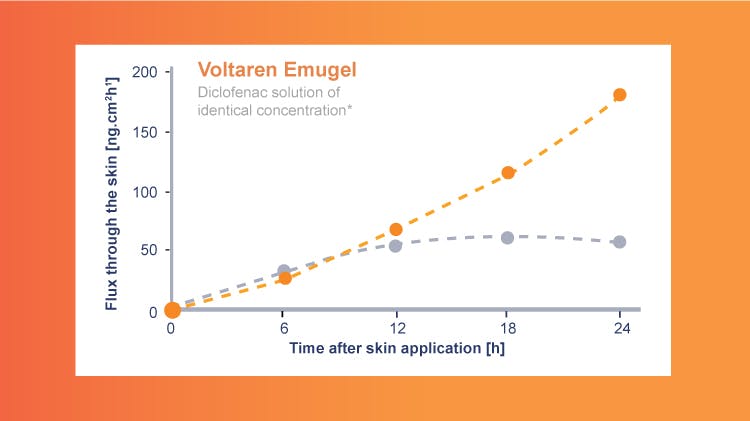
Voltaren Emulgel penetration over time
On its own, diclofenac does permeate the skin. However, VoltarenEmulgel is specially designed to aid diclofenac’s entry into and transit through the skin. It delivers diclofenac across the skin faster than a diclofenac solution of the same concentration.*1
*Comparison of diclofenac transdermal permeation ex vivo from Voltaren Emulgel and a solution of diclofenac sodium (wt %, pH 8.1) in water/isopropanol 50/50 wt %).
Source: Data on file, GSK 2019. Penetration Study.
Managing mild to moderate pain in your pharmacy
Helping your customers choose the most appropriate pain reliever.
